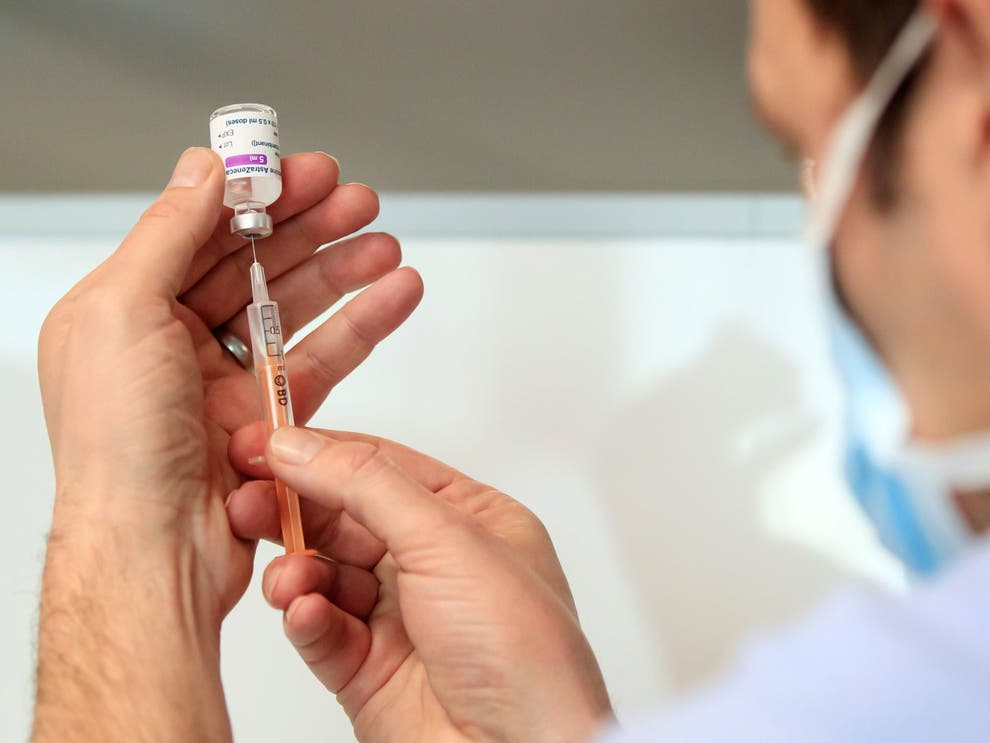Coronavirus: Children as young as six to be given Oxford vaccine in new clinical tests
World first will see volunteers receive jab in bid to assess resulting immune response

Your support helps us to tell the story
From reproductive rights to climate change to Big Tech, The Independent is on the ground when the story is developing. Whether it's investigating the financials of Elon Musk's pro-Trump PAC or producing our latest documentary, 'The A Word', which shines a light on the American women fighting for reproductive rights, we know how important it is to parse out the facts from the messaging.
At such a critical moment in US history, we need reporters on the ground. Your donation allows us to keep sending journalists to speak to both sides of the story.
The Independent is trusted by Americans across the entire political spectrum. And unlike many other quality news outlets, we choose not to lock Americans out of our reporting and analysis with paywalls. We believe quality journalism should be available to everyone, paid for by those who can afford it.
Your support makes all the difference.Children as young as six are to be given the Oxford-AstraZeneca coronavirus vaccine as part of new clinical trials to test its efficacy in those under 18.
Some 300 volunteers aged between six and 17 will receive the jab in a world-first bid to assess whether it produces a strong immune response in youngsters.
Andrew Pollard, professor of paediatric infection and immunity at the University of Oxford, and chief investigator on the trial, said: “While most children are relatively unaffected by coronavirus and are unlikely to become unwell with the infection, it is important to establish the safety and immune response to the vaccine in children and young people as some children may benefit from vaccination.
“These new trials will extend our understanding of control of Sars-Cov-2 to younger age groups.”
The trial’s first vaccinations will take place in the next fortnight with up to 240 children receiving the jab and the others being given a control meningitis jab.
Professor Jonathan Van-Tam, England’s deputy chief medical officer, had said “several” trials were already under way to develop vaccines for children and that it was “perfectly possible” some would be licensed by the end of the year.
The University of Oxford said its trial was the first to look at the 6-17 age group. It said other trials had begun but only measuring efficacy in those aged 16 and 17.
Rinn Song, paediatrician and clinician-scientist at the Oxford Vaccine Group, said: “The Covid-19 pandemic has had a profound negative impact on the education, social development and emotional well-being of children and adolescents, beyond illness and rare severe disease presentations.
“It is therefore important to collect data on the safety and the immune response to our coronavirus vaccine in these age groups, so that they could potentially benefit from inclusion in vaccination programmes in the near future.”
The Royal College of Paediatrics and Child Health has said there is evidence Covid-19 can cause death and severe illness in children, but that this is rare.
It said: “In children, the evidence is now clear that Covid-19 is associated with a considerably lower burden of morbidity and mortality compared to that seen in the elderly.
“There is also some evidence that children may be less likely to acquire the infection. The role of children in transmission, once they have acquired the infection, is unclear, although there is no clear evidence that they are any more infectious than adults.”
The Oxford vaccine is one of three currently approved for use in adults in the UK, along with those from Pfizer and Moderna.

Join our commenting forum
Join thought-provoking conversations, follow other Independent readers and see their replies
Comments